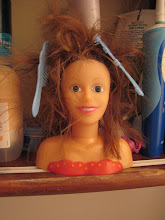Subsequent to ploughing through the various obligated day long coffee visits, constant battles with what’s ‘done’ and what’s ‘not done’ and assortment of illnesses Syria seems to supply on every visit to make it to the hairdresser to have our hair pinned, curled and hair-sprayed to within an inch of its tortured life, we are then confronted with the stalking video camera nightmare and various elbow grabbing relatives attempting to ‘marry us off’ by thrusting us in front of it. Being ‘so English’ my sister and I often find this an awkward, humiliating experience.
As a child, a Syrian wedding involves being a bridesmaid or page boy, running around the swimming pool at the reception and drinking sneaky arak under the table with the cousins. As a young adult, people size you up in a different light. There exists a perpetual fear of putting a foot wrong in the presence of gossips, and a strong sense of obligation. It is terrifying.
Memories of bustling aunties who before a party would disappear into their rooms as nanny’s, cooks and cleaning ladies, reappearing in a waft of perfume and hairspray, superhero-esque, dazzling from head to toe, is an aspect of Syrian culture that used to amaze me as a child but now haunts and installs a sense of dread in me.
My Syrian escapades began at four years old. Visits to my paternal family normally coincided with the continual stream of matrimony, always taking place in intense heated conditions of summer in the days before air conditioning. At that age I was more aware of the impact the whole experience had on the senses. Sights, sounds and smells all felt extreme, pungent and completely alien compared to life at home in England.
These childhood trips tend to merge into a blur of heat, sequins, relatives, the smell of Turkish coffee, continuous kitchen clatter of pots and pans of my grandma’s or ‘tettas’ cooking, the loud cry of passing street sellers on donkeys, dusty floors, family gatherings on the balcony in the warm evenings and being allowed to stay up late with the grown-ups, singing and belly dancing along to my uncles accordion swathed in multicoloured, sparkling tack.
Hopping on the ramshackle bus to the swimming pool and discarding objects off the balcony was the highlight of getting together with all the cousins, a common interest uniting our various languages. One unfortunate episode involved a watermelon and somebody’s open window. Well, unfortunate for them, we found it hilarious! We were also always so amused by the Syrian disregard for health and safety “he carries his life in the palm of his hand’’ and the subsequent amount of freedom we enjoyed as a result.
Unfortunately the constant heat, hoards of loud cheek pinching relatives, eternal ‘bad tummy’s’ and lack of privacy during the teenage years may have made the experience overwhelming and tiresome and induced a little Syria hating in the hearts of my sister and me.
However, now I look back with nostalgia because the end of childhood in Syria follows the realisation that much of the ample freedom once taken for granted does end quite abruptly, and that intense suffocation was simply an aspect of the overwhelming Syrian hospitality, passionate warmth, family closeness and lack of inhibition, which can be difficult for the English reserve to accommodate.
Luckily my initiation at an early age made it a little easier for me than it was for my older sister and especially my English mother who was plunged into the deep end of the system with no prior warning or expectation of what was to follow.
Maturity has taught me the benefits of being part of this wonderful culture. It only took me 25 years to admit that I am privileged to be both English and Syrian, and as a result have been allowed to experience the best of both worlds.
Subscribe to:
Post Comments (Atom)

No comments:
Post a Comment